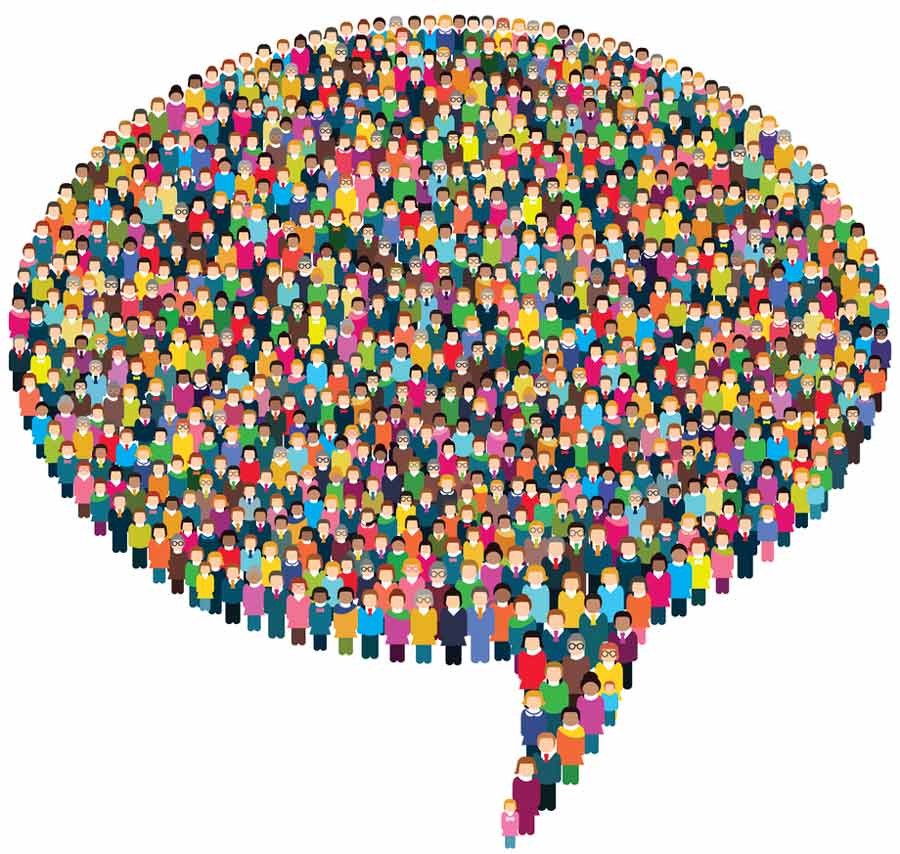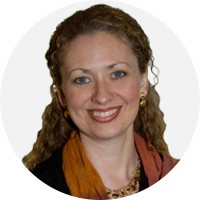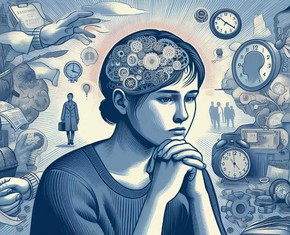The views expressed in our content reflect individual perspectives and do not represent the authoritative views of the Baha'i Faith.
We are living in confusing, disturbing times. When confused or disturbed, it eases our minds to put labels on things. Somehow, categorizing and labeling helps our brain sort and make sense of that which is chaotic or perplexing. Labeling is oddly comforting (as I recently discovered when organizing my medicine cabinet with neat little printed labels on each shelf).
The problem with categorizing or labeling people is that it is too simple and usually unfair. Labeling allows us to put ourselves in a different category, artificially separating us from that which we believe we are not. The human inclination to categorize enables others to be put in a box, and gives some justification for not having to deal with them, believing that we are different and superior.
The Baha’i teachings warn us about this inclination, even when we believe someone may deserve to be labeled, perhaps when they have done something harmful:
Cleanse ye your eyes, so that ye behold no man as different from yourselves. See ye no strangers; rather see all men as friends, for love and unity come hard when ye fix your gaze on otherness. And in this new and wondrous age, the Holy Writings say that we must be at one with every people; that we must see neither harshness nor injustice, neither malevolence, nor hostility, nor hate, but rather turn our eyes toward the heaven of ancient glory. – Abdu’l-Baha, Selections from the Writings of Abdu’l-Baha, p. 24.
Anytime we refer to someone as “a [fill in the blank],” we are categorizing or labeling. (“She is a racist …” “He is a narcissist …” “She is a bully ….” “He is a sexist …” “She is a conservative …” “He is a liberal …”) By labeling someone, we create divisions and immediately set up the conditions for disunity. When we label people, we neglect the complexity of the person behind the labels—their good qualities as well as the qualities that are still a work in progress. The reality is that labels and categories are usually rooted in a desire for separation or artificial distinction.
 Labels have been used strategically by political campaigns and marketing companies to separate people from each other for many years. Their messages are telling us to: “click this meme that describes your world view as better than others,” “buy this product that will allow you to be in a better class or category of people,” or “support this political category so that you can see yourself as righteous and others as lost.”
Labels have been used strategically by political campaigns and marketing companies to separate people from each other for many years. Their messages are telling us to: “click this meme that describes your world view as better than others,” “buy this product that will allow you to be in a better class or category of people,” or “support this political category so that you can see yourself as righteous and others as lost.”
These artificial distinctions draw on our insecurities. They make false promises that by adopting their label, you will feel good about yourself, believing that you are somehow better or superior. These labels are often used to foment competition, promote profit, over-simplify complex issues, or justify war.
We must be wary of the current societal inclination to quickly label, categorize, and dismiss others. The Baha’i writings call us to a completely different standard, even when we truly believe someone’s behavior is wrong or evil.
Rather than categorize, demonize, and estrange ourselves, the Baha’i teachings ask us to seek to draw closer together in unity with others, helping each other on our shared journeys of growth:
When we find a person fallen into the depths of misery or sin we must be kind to him, take him by the hand, help him to regain his footing, his strength; we must guide him with love and tenderness, treat him as a friend not as an enemy. We have no right to look upon any of our fellow-mortals as evil. – Abdu’l-Baha, Paris Talks, p. 147.
We are all human, taking a journey that is not binary or fixed. We all grow and evolve and change. To be boxed in a category is the root cause of so much of what is wrong with the world. It also too easily absolves us from having to get to know the human being behind the labels, deal with the fluid nature of who we all are, or look at ourselves in the mirror. Our worst qualities are often not far from those we claim to despise in others and the difference, the Baha’i teachings say, is only a matter of degree:
The only difference between members of the human family is that of degree. Some are like children who are ignorant, and must be educated until they arrive at maturity. Some are like the sick and must be treated with tenderness and care. None are bad or evil! We must not be repelled by these poor children. We must treat them with great kindness, teaching the ignorant and tenderly nursing the sick … We have seen that whatever brings division into the world of existence causes death. Likewise in the world of the spirit does the same law operate. Therefore should every servant of the One God be obedient to the law of love, avoiding all hatred, discord, and strife. – Abdu’l-Baha, Paris Talks, pp. 138-139.
You May Also Like
Comments

















“Once you label me you negate me”
How very important this simple phrase!
Clearly, humans have imperfections. Our challenge is to embrace the beauty of all those around ...us and not let our gaze linger overlong on their shortcomings.
how many labels did you use in this article, and how come you didn't address that?